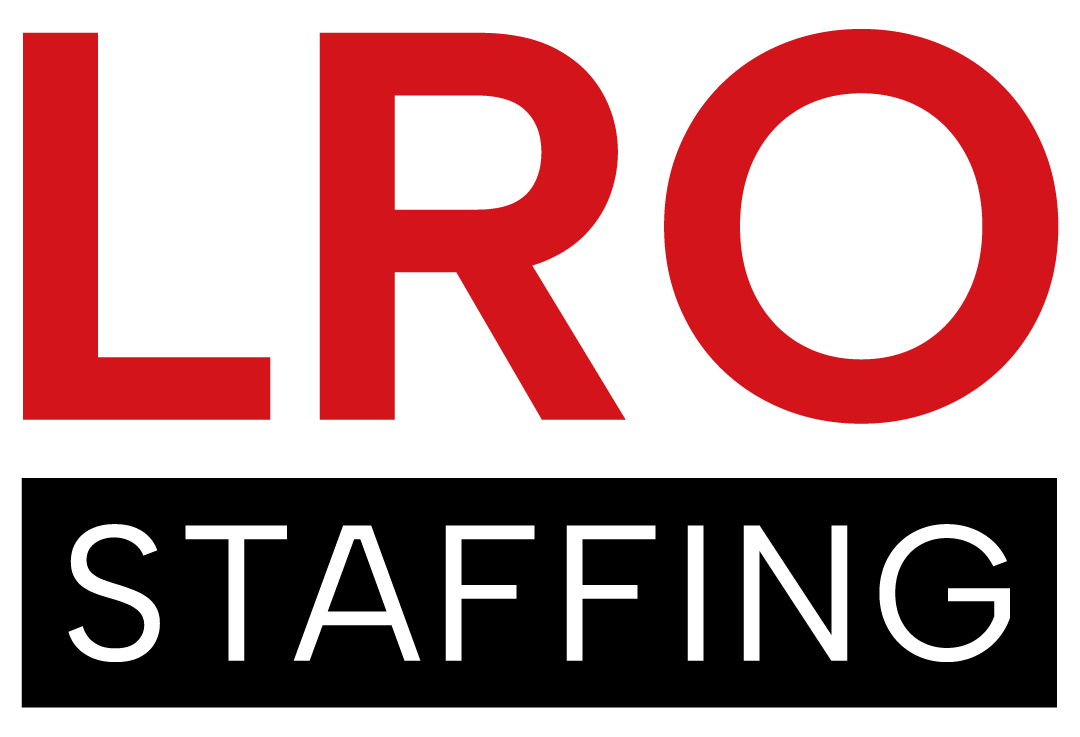As we move into the second half of 2025, Canada’s job market presents a complex and evolving picture, shaped by sector-specific volatility and cautious employer sentiment. Whether you’re a hiring organization or a job seeker, understanding these shifts can help you make more informed decisions.
At LRO Staffing, we work closely with professionals and employers across various sectors, including Corporate Services, Legal, Finance & Accounting, Technology, Construction & Development, and Government. With over two decades of recruitment experience in the Canadian market, we’ve had a front-row seat to how hiring trends have shifted and where momentum is building again.
In this blog post, we’re sharing what we’ve observed so far in 2025: the economic signals, hiring patterns, and candidate behaviours that are shaping the year, and what that can mean for your talent strategy or job search.
A Look At The Numbers
According to May’s Labour Force Survey, the national unemployment rate rose to 7.0%, marking the highest level (outside of the pandemic years) since 2016. That translates to over 1.6 million Canadians currently unemployed, a 14% increase from this time last year.
For job seekers, this means stiffer competition and longer searches, with the average unemployment duration having stretched to about 21.8 weeks. Meanwhile, wage growth is holding steady at around 3.4-3.5%, signalling that organizations are being more conservative with compensation as economic uncertainty looms.
Sector Stability: What’s Holding
While the Canadian job market overall remains cautious, the good news is that demand across certain professional sectors continues to hold steady. For organizations and job seekers operating in Administration, HR, Finance & Accounting, Legal, Technology, the Public Sector, and Construction & Development, the outlook is mixed but not without opportunity!
Administration & HR
Administrative and HR roles have remained relatively resilient in 2025, particularly within public sector institutions and larger enterprise organizations. Employers undergoing workforce transitions or implementing new hybrid models are relying on experienced administrative professionals and adaptable HR teams to manage change and keep operations running smoothly. Hiring is competitive, with strong emphasis on versatility and digital fluency.
Finance & Accounting
This sector continues to show strength, particularly in roles tied to forecasting, compliance, payroll, and financial reporting. Many businesses are leaning on contract or interim finance professionals to support key projects without committing to full-time headcount. As organizations tighten budgets, professionals who can step into roles quickly and deliver immediate value remain in very high demand.
Legal
Legal hiring has also stayed consistent throughout 2025, with a steady need for professionals in areas like employment law, compliance, and contract management. In-house legal departments are making targeted hires to support changing regulatory landscapes, while law firms remain focused on mid-level lawyers and legal support staff.
Technology
While some parts of the global tech market have cooled, demand in Canada remains relatively stable for IT professionals, particularly in cybersecurity, cloud services, infrastructure, and analytics. Government departments, healthcare, financial institutions, and growing mid-sized firms are continuing to invest in digital transformation, often leaning on contract talent to execute short- and medium-term projects.
Public Sector
Following a temporary hiring bump tied to election activity, public sector employment has stabilized and remains one of the most dependable employment sources in 2025. Roles in administration, communications, HR, finance, and IT remain active, particularly on a contract basis to support project-based or transitional needs. While these roles continue to offer security and benefits, the growth pace has slowed compared to previous years and is likely to remain steady rather than expansive moving forward.
Construction & Development
While overall construction activity has slowed compared to the boom years, public infrastructure and institutional projects are sustaining demand. Project leadership professionals, site superintendents, project coordinators, and estimators continue to be needed in areas tied to utilities, transit, and government-funded developments. Professionals with hands-on field experience and technical know-how remain well-positioned.
What This Means For Employers
For hiring organizations, 2025 has become a year of calculated decision-making. Faced with economic pressures such as trade-related uncertainty and elevated costs, many companies are pressing pause on permanent hiring plans, becoming more cautious in their growth strategies.
That said, one area seeing increased traction is contract and project-based hiring. Organizations still have business to deliver, just with tighter margins and leaner teams. Contract roles offer flexibility, reduce long-term commitments, and allow businesses to bring in skilled professionals for high-impact work without the overhead of a full-time hire.
In fact, contract roles are often the first to rebound in times of labour market uncertainty. As organizations test the waters before committing to permanent headcount increases, they often turn to contractors to fill gaps, deliver on projects, or maintain momentum. This makes contract talent a strategic solution and a leading indicator of market recovery.
What This Means For Job-Seekers
With longer average job search durations and growing competition in many industries, job seekers need to think strategically in 2025. One key opportunity? Being open to contract work.
Not only are contract roles more available right now, but they can also lead to full-time opportunities once market confidence returns. Contract positions often provide exposure to new industries, valuable experience, and the chance to prove your impact while staying active in the workforce.
For professionals with in-demand skill sets, particularly in Tech, Finance, Legal, and HR, contract roles offer a way to stay competitive and continue developing expertise.
At the same time, we’re seeing a growing emphasis on skills-based hiring, especially in sectors like AI, clean energy, and data analytics. More employers are prioritizing practical abilities and certifications over formal degrees, opening new pathways for those who are willing to upskill.
In summary, Canada’s 2025 job market is characterized by caution, but also opportunity. While unemployment is rising, there are still bright spots in the market for those who know where to look.
Hiring organizations that remain flexible, especially those that leverage contract talent, can maintain momentum in a slower economy. For job seekers, being open to short-term roles, continuously building skills, and keeping an eye on growth sectors will be the key to staying competitive.
Looking to stay ahead of the hiring curve? Whether you’re building your team or planning your next career move, our team is here to help you navigate the changing job landscape with confidence and expertise. We encourage you to contact us to learn more.

